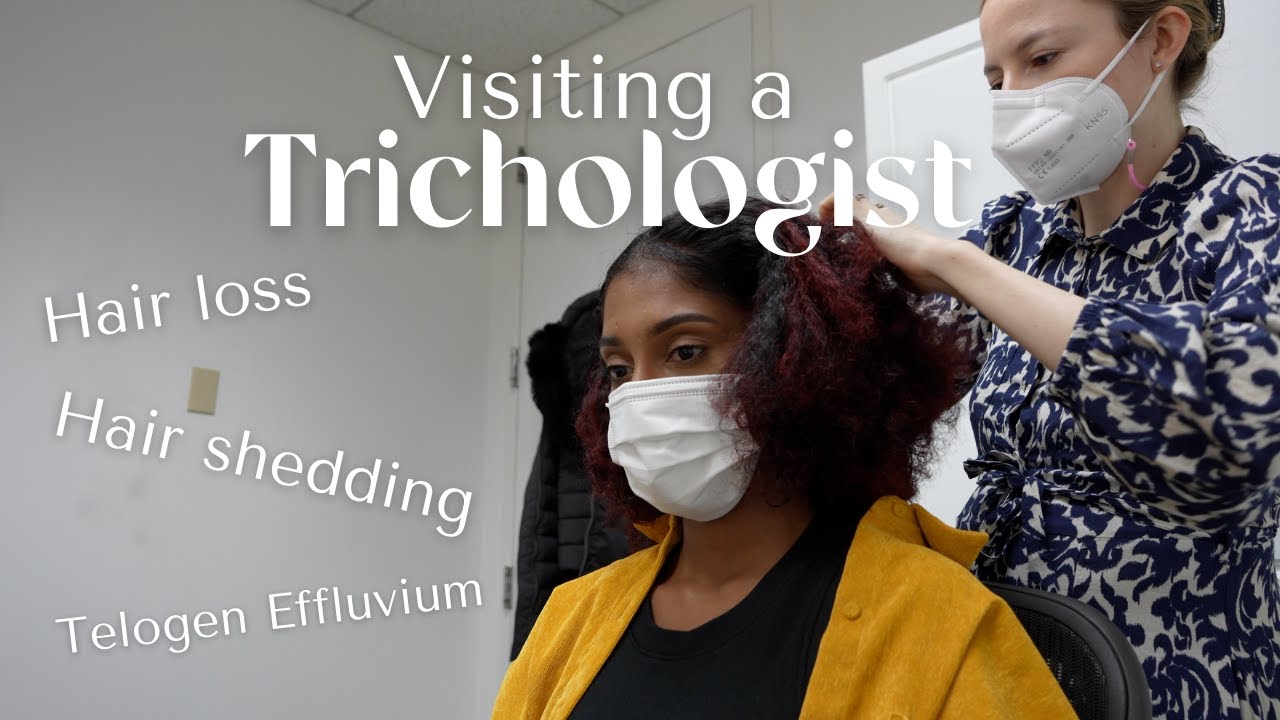We treat our hair with the utmost care and will go to great lengths to avoid hair loss, itchiness, and the possibility of going bald. And this is where a trichologist, also known as a “hair and scalp expert,” can come in handy.
Trichology is a paramedical field that focuses on scalp issues and hair loss.
A trichologist is a professional who has spent a significant amount of time studying trichology. It can treat any hair and scalp problem you may have. On the other hand, trichologists receive extensive training in providing advice to patients with hair-related problems or ailments, such as scalp psoriasis, greasy scalps, or hair loss.
Trichologists can examine your hair and scalp for signs of hair loss, or alopecia.
What exactly is a trichologist?
A trichologist is a specialist in trichology, which is the study of illnesses or problems with the hair and scalp as well as treatments for them.
The term “trichology” is derived from the Greek word “trichos,” which means hair. Trichologists, despite not being licensed doctors, can provide advice to those who are experiencing hair problems such as hair loss or scalp ailments.
What Is the Role of a Trichologist?
Specialists in this field assist people with issues such as hair loss, breakage, an oily scalp, and scalp psoriasis. Some trichologists can also assist with alopecia and the hair-pulling disorder trichotillomania.
Trichologists examine your hair and scalp to determine the severity of your condition and to make treatment.
How Can a Trichologist Help You?
Everyone, regardless of age, skin color, or gender identity, may experience hair and scalp problems at some point. A trichologist can help you find the source of your problem and recommend self-care strategies. If you start having hair or scalp problems, you should see a trichologist. It can include hair loss or thinning areas, scalp flakes that persist despite anti-dandruff products, or scalp discomfort and soreness.
Considerations When Looking for a Trichologist
You could schedule consultations with various trichologists before making a decision. There are many trichologists in your city who run hair transplant clinics.
To find the best doctor for hair treatment, however, look for someone who has a lot of experience in this field. It’s the same as looking for a reputable dermatologist. Furthermore, before consulting a trichologist, you should consider the opinions of your family, friends, or other social circle. Furthermore, online testimonials or medical professional recommendations can help you gain clarity.
when to consult a hair specialist
A trichologist will assist you in finding a long-term solution for hair and scalp problems. Numerous conditions, such as accident-related trauma, hypertension, hypothyroidism, and hormone issues, frequently coexist. These not only have an effect on the condition of your scalp and hair, but they can also lead to issues such as permanent baldness. To avoid long-term harm, anyone suffering from these conditions should seek the advice of a trichologist. Instead of providing a quick fix, their solutions address the root cause of the problem.
A trichologist can provide an in-depth diagnosis for serious issues such as hair loss, scalp itching, uneven hair loss, hair thinning, a flaky or burning scalp, and so on. They must conduct a thorough physical examination as well as procedures such as trichograms, hemograms, liver function testing, and hormone screening. As a result, the trichologist will be able to comprehend the gravity of the current problem and contribute to its treatment.
Trichologists treat what?
Trichologists are doctors who specialize in the treatment of hair and scalp problems. Before making a diagnosis, the specialist would perform a thorough examination and, on occasion, request a blood test from your primary care physician in order to identify the problem and present potential treatments. Trichology can help with the following issues:
Alopecia
Alopecia manifests itself in a variety of ways, each with its own set of causes. Alopecia is most commonly seen in the form of pattern hair loss, regardless of gender. more commonly seen in men’s hairlines. Men may notice a receding or entire or partial baldness as a result, while women may notice a widening of their part. Alopecia can be caused by a variety of factors, including hormones, family history, and environmental changes. Stress can also play a significant role. Alopecia can cause increased stress as well as hair loss. A trichologist can help determine the cause of alopecia and suggest treatments.
The hair texture
Excessive heat, chemicals, and colors can permanently damage the hair follicle and change the way your hair behaves, feels, and looks. Many people cut off the damaged sections to keep the remaining hair in good condition during regrowth. However, there are ways to restore your damaged locks to their former glory without removing a single hair. When this happens, your trichologist will work with you to keep your hair healthy and, as a result, looking its best.
Make a Consultation with a Hair Specialist Doctor.
It is best to consult a hair loss specialist before making any decisions about your hair loss. By analyzing your scalp, a hair specialist doctor will be able to determine the root cause of your problems. and recommend a suitable treatment or hair regime to stop or at least manage hair loss. A doctor who specializes in hair loss can treat it at any stage and provide you with a full head of natural-looking hair.
Find the Nearest Clinic: https://parthadental.com/dentist-near-me/
Book an Appointment for a Dental And Hair Checkup at Partha Clinic. OR
Call: 08500779000


